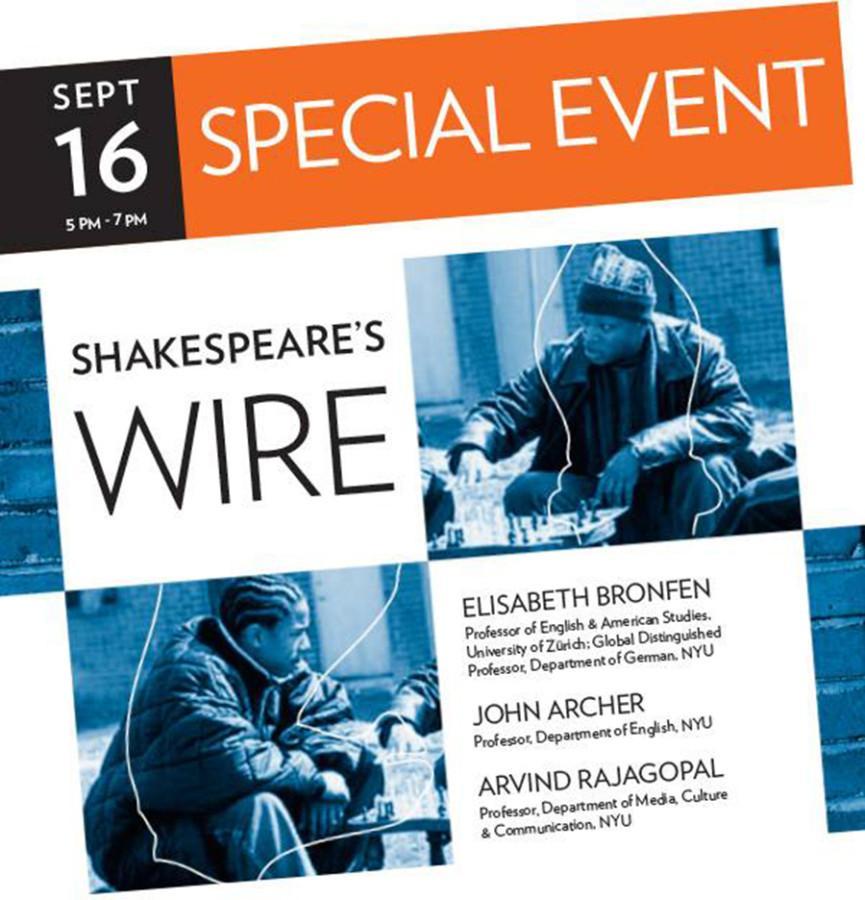Shakespeare, ‘The Wire’ share common ground
NYU German Department professor Elizabeth Bronfen hosts panel on HBO’s ‘The Wire’
Elisabeth Bronfen hosted a panel on Sept. 16, on the relationship between the hit show The Wire and Shakespeare’s war plays.
September 21, 2015
Shakespeare’s war plays and HBO’s hit show “The Wire” may have few similarities on the surface, but NYU Global Distinguished Professor Elisabeth Bronfen believes otherwise. On Sept. 16, Bronfen took the opportunity to expose the similarities between the works in a panel hosted by the NYU Center for the Humanities.
Set in Baltimore, “The Wire” was an HBO show that aired from 2002 to 2007. The creator and head writer of the show, David Simon, focused on highly polarizing issues in the United States, such as police brutality and racial violence.
Since the show’s end, various academics have carefully sifted through it and have found that it is one of the only TV series that deals with these political matters in a realistic manner. It still seems pertinent to today’s problems, especially in light of the recent cases of police brutality that have enraged many and have driven people to protest in the BlackLivesMatter movement.
The connection she found between these literary works is what she has coined as cross-mapping, where she takes a contemporary medium and compares it to a historically significant masterpiece.
Bronfen said her intentions are to apply Shakespeare in the contemporary moment. In “The Wire,” she found power relations and hierarchical structures in the show, which are similar to the feudal system in the “War of Roses” plays.
One of the most interesting conclusions she reaches is that the motivation of both writers — David Simon in “The Wire” and Shakespeare in “Henry VI” and “Richard III” — is to engage in a historical reflection and to reimagine their societies. She drew this conclusion by cross-mapping both texts and finding overlapping themes of violence and war. The historical reflection led Bronfen to suggest that perhaps peace is achieved through war.
Furthemore, English professor John Archer, one of the participants in the panel, explained that the perception of violence is greatly influenced by higher powers.
“Shakespeare depicts how political authority manages people’s feelings about violence,” Archer said.
In other words, the real-life institutions that are in place are reflected in Shakespeare’s plays and adaptations of his plot, which Bronfen claims is the case for “The Wire.”
Professor Arvind Rajagopal, the mediator of the panel and a Media, Culture and Communication faculty member, has incorporated “The Wire” into his class lectures, believing it valuable to study the various social dynamics of the series.
“How often do you get that much wealth of local knowledge, together with a sharp but subtle political perspective, and artistic talent, all coming together?”
Rajagopal said.
A version of this article appeared in the Sept. 21 print edition. Email Karen Kandelman at [email protected].

























































































































































